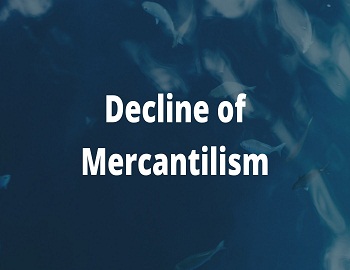Treaty of San-Stefano, March 1878:
On March 3, 1878, Russian general Ignatiev forced the Sultan of Turkey to conclude a treaty at San Stefano on the terms and conditions dictated by Russia. This controversial Treaty which marked the climax of Russian power in the Balkans violated all the assurances that Ignatiev and Garshkov had given to European powers from time to time. The terms and conditions of the Treaty were as follows:
(1) Russia claimed 140 million roubles as damages from Turkey. As Turkey was unable to pay such a tremendous amount she surrendered the territory of Dobruja, Ardhan, Kars, Batum, Bayazid, and some other territories.
(2) Turkey promised to immediately implement in Bosnia and Herzegovina all the reforms that had been proposed at the Conference of Constantinople. The implementation work would be supervised by Russia and Austria.
(3) Turkey promised to treat the Armenian Christians liberally.
(4) Autonomous government was promised for Crete Epirus and Thessaly in keeping with the local needs.
(5) An independent state of Rumania was constituted but Bessarabia was taken away from Rumania and handed over to Russia. Russia had lost this territory through the Treaty of Paris (1856).
(6) Serbia and Montenegro were acknowledged as independent states. Montenegro was given some areas in the northeast and southeast which included the port of Antewari. Similarly, Serbia was also given some southern areas including the town of Nish.
(7) Bulgaria was acknowledged as an autonomous state with the right to elect its Christian governor. Its boundaries were fixed from the Danube to the Aegean Sea and from the Black Sea to Albania. Thus on the basis of language and culture all the people of Balkan were brought together and an independent state of Big Bulgaria was constituted. This was the most important provision of the treaty.
This treaty was a great diplomatic success for Russia. Now the Turkish Empire in Europe was limited to a small area between Trace, Salonika, Thessaly, Epirus, Albania, Serbia, and Montenegro. It was almost wiped off the map of Europe. Thus Russia consolidated her success in war with diplomatic measures and washed the national humiliation she had suffered in the Crimean War.
Reaction of the European States against the Treaty of San-Stefano:
The publication of the terms and conditions of the Treaty of San-Stefano in European newspapers created commotion in England and Austria. Though the creation of Big Bulgaria on the basis of nationality was not an improper step, yet Austria felt humiliated as she had gained nothing whereas Russia had gained so much. After being expelled from Germany, Austria had been gazing at the Balkan States to satisfy her imperialistic hunger. Now Russian influence in these states had greatly increased and after this treaty, it appeared that nothing was left in this world for Austria. No other states except Bulgaria and Russia were satisfied with this treaty. Out of the area that had come under Rumania, the fertile province of Bessarbia was taken by Russia and only semi-barren areas were left with her. The rise of Bulgaria displeased Serbia, Montenegro, and Greece. Greece was so much enraged that it went at Thessaly. Bismarck had no interest in the Balkan Peninsula but he supported Austria. England felt most worried and her Prime Minister Disraeli said in the House of Lords, “The Treaty of San Stefano has sounded the death knell of the Turkish Empire in Europe and had created Big Bulgaria with many races which are not Bulagars….The European part of the Turkish Empire has come under the control of Russia and the overall outcome of the terms and conditions of the Treaty would be that the Black Sea would become a Russian lake like the Caspian Sea. Austria wanted an international conference to be convened to reconsider this Treaty. England also supported this idea, but Russia opposed it. For six weeks it appeared as if the war would again break out. Disraeli threatened Russia by declaring on April 17, 1878, that he would call up 17 thousand Indian Soldiers to Malta. This threat had its effect. Russia was weak and her economy was not good and above all Bismarck was supporting Austria. All these conditions made Russia most unwilling to agree to call a European Congress to reconsider the Treaty of San Stefano.









Comments (No)